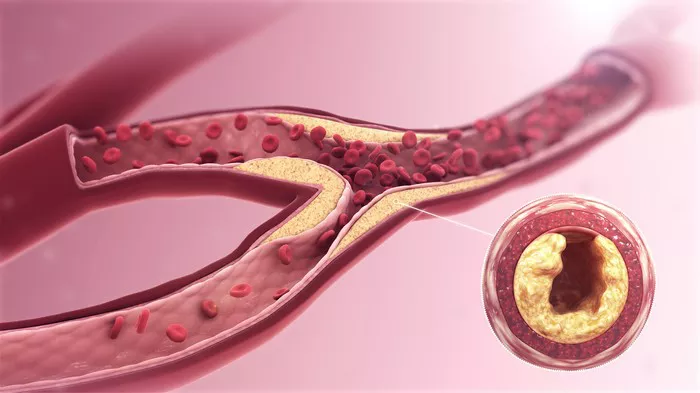Heart disease remains a leading cause of mortality worldwide, with blocked heart arteries posing a significant risk to cardiovascular health. Understanding why these arteries become blocked is crucial for prevention and effective management of heart-related conditions. In this article, we delve into the complex mechanisms and contributing factors that lead to the blockage of heart arteries, also known as coronary artery disease (CAD).
The Anatomy of Heart Arteries
Before delving into the causes of artery blockage, it’s essential to understand the anatomy of heart arteries. The heart relies on a network of arteries to supply oxygen-rich blood to its muscle tissue. The main coronary arteries, including the left main coronary artery and the right coronary artery, branch out into smaller vessels known as coronary arteries. These arteries, in turn, supply blood to different regions of the heart muscle.
Atherosclerosis: The Underlying Process
The primary culprit behind blocked heart arteries is a condition called atherosclerosis. Atherosclerosis is a progressive disease characterized by the buildup of plaque inside arterial walls. This plaque is composed of cholesterol, fatty substances, cellular waste products, calcium, and other substances found in the blood.
Contributing Factors to Artery Blockage
1. High Cholesterol Levels: Elevated levels of low-density lipoprotein (LDL) cholesterol, often referred to as “bad” cholesterol, can contribute to the development of atherosclerosis. LDL cholesterol can infiltrate arterial walls, triggering an inflammatory response that leads to plaque formation.
2. Hypertension (High Blood Pressure): Chronic high blood pressure can damage the inner lining of arteries, making them more susceptible to plaque buildup. Additionally, high blood pressure forces the heart to work harder, increasing the risk of heart muscle strain and arterial damage.
3. Smoking: Tobacco smoke contains numerous chemicals that can damage blood vessels and promote the accumulation of plaque. Smoking also decreases the level of high-density lipoprotein (HDL) cholesterol, which is essential for transporting excess cholesterol out of the arteries.
4. Diabetes: Individuals with diabetes are at an increased risk of developing atherosclerosis due to elevated blood sugar levels. High glucose levels can damage the lining of blood vessels, facilitating the deposition of plaque.
5. Obesity and Sedentary Lifestyle: Being overweight or obese and leading a sedentary lifestyle are associated with a higher risk of atherosclerosis. Lack of physical activity can lead to weight gain, elevated cholesterol levels, and insulin resistance, all of which contribute to artery blockage.
6. Genetic Factors: Some individuals may have a genetic predisposition to developing atherosclerosis. Genetic conditions, such as familial hypercholesterolemia, can result in abnormally high cholesterol levels and an increased risk of arterial plaque formation.
The Role of Inflammation and Immune Response
Inflammation plays a crucial role in the progression of atherosclerosis. When LDL cholesterol accumulates in arterial walls, it can become oxidized, triggering an inflammatory response. Inflammation attracts immune cells to the site of plaque buildup, leading to further plaque growth and instability. Moreover, inflammatory processes can weaken the fibrous cap covering the plaque, increasing the risk of rupture and blood clot formation.
Consequences of Artery Blockage
The blockage of heart arteries can have severe consequences, including:
1. Angina: Reduced blood flow to the heart muscle can cause chest pain or discomfort known as angina. Angina may occur during physical exertion or emotional stress and typically subsides with rest or medication.
2. Heart Attack (Myocardial Infarction): A complete blockage of a coronary artery can lead to a heart attack. When blood flow to a part of the heart is blocked, the affected muscle tissue can become damaged or die. Prompt medical intervention is critical to minimize heart muscle damage during a heart attack.
3. Heart Failure: Chronic blockage of multiple heart arteries can weaken the heart muscle over time, leading to heart failure. Heart failure occurs when the heart cannot pump enough blood to meet the body’s needs, resulting in symptoms such as fatigue, shortness of breath, and fluid retention.
Prevention and Management Strategies
Preventing heart artery blockage involves adopting a heart-healthy lifestyle and managing risk factors effectively. Key strategies include:
1. Healthy Diet: Consuming a balanced diet rich in fruits, vegetables, whole grains, lean proteins, and healthy fats can help control cholesterol levels and blood pressure.
2. Regular Exercise: Engaging in regular physical activity, such as brisk walking, cycling, or swimming, can improve cardiovascular fitness, promote weight management, and reduce the risk of atherosclerosis.
3. Smoking Cessation: Quitting smoking and avoiding exposure to secondhand smoke are crucial steps in preventing artery blockage and reducing cardiovascular risk.
4. Blood Pressure and Cholesterol Management: Monitoring and managing blood pressure and cholesterol levels through medication, if necessary, can help prevent further arterial damage.
5. Diabetes Control: For individuals with diabetes, maintaining stable blood sugar levels through medication, diet, and lifestyle modifications is essential for preventing complications such as atherosclerosis.
6. Regular Health Screenings: Routine medical check-ups, including cholesterol tests, blood pressure measurements, and diabetes screenings, can identify risk factors early and allow for timely intervention.
Conclusion
Blocked heart arteries, resulting from atherosclerosis, are a significant concern in cardiovascular health. Understanding the causes, such as high cholesterol, hypertension, smoking, diabetes, lifestyle factors, genetic predisposition, inflammation, and immune responses, is crucial for prevention and management. Adopting a heart-healthy lifestyle, managing risk factors, and seeking timely medical care are essential steps in reducing the risk of artery blockage and its associated complications.

